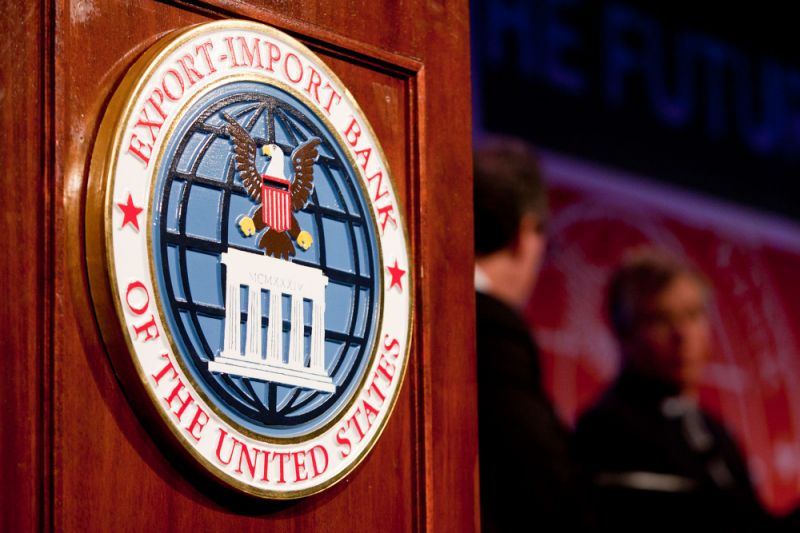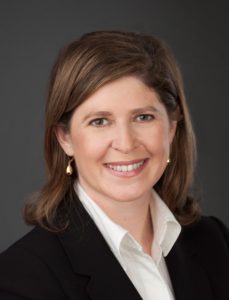by admin | Oct 18, 2014 | Africa, Foreign Investment
A project team consisting of five MBA students from the McDonough School of Business completed a project in correlation with Securitas, which examined the feasibility of developing an aquaculture feed production plant in South Africa.
The project team had a period of twelve weeks, culminating with a week in Johannesburg, South Africa, to deliver its presentation.
The objective was to determine whether investment in a fish feed plant could deliver a nominal rate of return of 18% or higher and, if so, which partners Securitas should work with to pursue the venture. Oceanwise Ltd. (Oceanwise), a South African aquaculture producer of Dusky Kob fish, was identified as one potential partner, and an American animal feed manufacturer, was another.
Two different investment options were identified: A smaller bolt-on retrofit production line and a new greenfield plant, were analyzed to gauge their potential profitability.
To evaluate this business opportunity, market forecasts for the aquaculture industries in numerous Sub-Saharan African countries were developed to gauge the size of the region’s potential customer demand. Nigeria and Ghana were revealed to be much larger markets than South Africa, though the prospect of serving these markets via export poses considerable challenges.
by admin | May 7, 2012 | Africa
Article by Richard Dowden in April 20 Wall Street Journal previewing books Africa’s Moment and Seasons of Rain.
For hundreds of years, outsiders have been divided sharply between Afro-pessimists who believe that Africa is permanently programmed to fail and Afro-optimists who see it as a cornucopia that couldproduce unimaginable wealth. In the 17th and 18th centuries, the slave trademade Europe rich, and Timbuktu was believed to be paved with gold. But then Africa became the “Dark Continent.” In the 1960s, it was the rising giant while Asia was seen as a basket case. By 2000, the Economist was calling Africa the”Hopeless Continent.”
Just now, most African countries have enjoyed more than a decade of economic growth at rates we in the West can only dream about. At the same time Congo, the massive heart of the continent, has suffered the most murderous conflict since World War II. Next door in Uganda, the capital Kampala has boomed while less than 200 miles to the north Joseph Kony’s Lord’s Resistance Army has abducted children and committed appalling atrocities. Africa is so big and so diverse that it contains both horrendous disasters and extraordinary successes.
Stephen Ellis, a professor of social sciences in Amsterdam, and Jean-Michel Severino, a former vice president of the World Bank and for 10 years the head of France’s international aid agency, have been at the forefront of analysis and debateabout Africa for almost three decades. Mr.Ellis in “Season of Rains” and Mr. Severino in “Africa’s Moment” both offer up their optimistic views of the continent and its prospects. Both believe that Africa is transforming rapidly and will play a global economic and political role in the 21st century. Both begin their books by discussing Africa’s booming population and the likely effects of its expected doubling to around two billion people by the middle of the century. And both agree that our images of Africa and attitudes toward it are out of date.
At first, in the 1960s, the independent African nations, supported by aid, did well. They funded development plans with massive borrowing backed by mineral deposits and rawmaterials. Aid was politically influential, too, during the Cold War, when it mattered whose side you were on. But after 1989, Africa was abandoned. Europe and the United States walked away, leaving a simple prescription for the future: democracy, human rights and the free market. (As one American official quipped to me in 1993: “If you get the third one right, you might get a discount on the other two.”)
The continent was essentially handed over to the World Bank and the IMF. They imposed “structural adjustment programmes.” African governments were forced to slash health, education and infrastructure budgets (laying off a generation of employees) and float their currencies in the belief that less government and more open markets would attract investment. But African currencies sank like rocks in the 1990s, and millions of people were impoverished. Aid halved as the European Union and the United States instead poured support into Eastern Europe.
As the African state patronage machines dried up or broke down, more than a dozen rebellions andwars broke out or intensified—in places as diverse as Togo and Somalia. Once-favored dictators like Congo’s Mobutu Sese Seko were overthrown, and instability followed insurrection. Investors stayed away, fearful of war, disease, hunger and poverty. Worse, the HIV/AIDS pandemic erupted, the biggest and deadliest human catastrophe since the Black Death. According to the United Nations, 17 million Africans had died of AIDS by 2004, and an additional 24.5 million were infected with HIV.
In the last years of the 20th century, two new factors came into play. Neither had much to do with the West’s preferred prescription for a sick continent. First, the Chinese government decided that Africawould be a key source of the raw materials that it desperately needed for its booming manufacturing industries. The Chinese went where white men feared to tread, and their voracious demands for African minerals pushed prices up and began to revive African economies. Second, small mobile-phone companies set up masts in African capitals, believing that maybe the top 2% or 3% of Africans might want a mobile phone. They were wrong. In a continent of talkers with fewer than 27 million landlines, everybody wanted one.
Africa was a lot richer than the World Bank’s figures indicated. The bank missed the “gray economy” on which much of the continent survives and, in some places, thrives. Cellphones and the scratch cards that supply minutes to any phone sold like crazy, not least in the lower tiers of the economy, in the new millennium. By 2008 more than 40% of Nigerians were mobile-phone subscribers. But according to U.N. human-development indexes, over 60% of these people were poor—living on less than $2 a day. Drivers of battered old taxis and pavement-stall sellers were suddenly talking and texting, buying and selling. Meanwhile entrepreneurial middle-class Africans, many of whom had studied outside their own countries, took advantage of the economic growth and newly available communications to set up service businesses. It was a good decade in Africa.
For Mr. Severino, in “Africa’s Moment,” what matters now is the demographics: the coming African population explosion and the mass movement of people from rural areas to towns. The population boom is partly due to a decline in infant mortality. According to the World Bank, in 1970 there were 136 deaths per thousand live births; by 2009, the number had dropped to 72.6. But the birthrate itself remains very high in many African nations. The U.S. fertility rate is estimated at 2.1, Europe’s is 1.59. Sub-Saharan Africa’s is estimated at 4.94. One simple fact is clear: Many Africans want to have many children.
Africa, Mr. Severino notes, had a fifth of the world’s population in 1500 and then suffered four centuries of mortal disruption. It is only now catching up. But this raises a question. Historically, when populations have exploded—such as Europe’s in the 19th century—the answer was emigration. But tomorrow’s young Africans will have nowhere to go. The African population boom, Mr. Severino believes, will be “the most incredible demographic adventure that human history has ever known. A time neither for rejoicing nor for fear, but simply for recognizing the facts. . . . Africa’s demographic advance over the nextfifty years is unstoppable. The worst thing to do would be to ignore it.”
“Africa’s Moment” is a wake-up call. The book—which Mr. Severino wrote with Olivier Ray, one of his former colleagues at the French aid ministry—is a broad survey of contemporary Africa. Its message is simple: Look out world,here comes Africa. Early on, Mr. Severino dismisses Afro-pessimist theories that claim that the continent is immutable because of its culture or climate. He predicts that the Africa of the future will be urban. The cities will enable social freedom that will melt ethnic and cultural differences and allow people to form communities of choice.
Mr. Severino thinks that churches rather than the ethnic groups will be the particular glue that will bind people together in the future and offer them solidarity in hard times. The growth of evangelical Christianity all over Africa is an extraordinary recent phenomenon—whole communities forming around a single pastor. Funded by American fundamentalist churches, these pastors and preachers are quickly drawing members away from the traditional establishedchurches. Their equally dynamic counterparts are fundamentalist mosques supported by benefactors in Saudi Arabia.
What Africa lacks right now are the manufacturing businesses that might employ the new millions. At present, cities are largely unplanned slums, and Africa’s rulers have allowed their countries to become rentier states. The continent’s rich resources are extracted and shipped out with revenues and kickbacks going to politicians, not their populations. Mr. Severino estimates that between 30% and 50% of the national incomes of Africa’s oil producers disappear, being either stolen and exported to secret tax havens.
Yet we can easily find real success stories. Ghana and Mozambique have both turned their economies around by taking advantage of the resourceboom and creating regulatory frameworks that attract local and outside investment. Ghana has achieved a consistent 5% growth rate since the turn of the century, when political stability encouraged the rising middle classes to create a domestic market for goods and services. Consistent government policies, not to mention politicians who accept election results, have encouraged long-term investment in property and local manufacturing. Mozambique has a similar recent history and is heading for a growth rate of over 7% this year.
There is no magic recipe for turning countries around, Mr. Severino writes, only good cooks. He believes that 20 years after democracy was prescribed to Africa by the West, there are the beginnings of local democratic activities all over the continent that are forcing governments to deliver. One hopes this is true, though he offers noconcrete examples. Uganda, another economically successful country, suggests the opposite. Yoweri Museveni, in his successful bid to remain president after 25 years in the job, went around the country last year handing out cash to village chiefs and others who might swing the vote his way. It worked. He was re-elected.
What Mr. Severino worries about more than local government is Europe. The continent closest to Africa has turned its back on its neighbor and is ignoring the rising threat of unmanageable migration from Africa to Europe (an obvious outcome of the population explosion). It is not just that China is driving—and taking full advantage of—Africa’s transformation. So is India, whose corporate giants and ambitious small fry sense opportunity. Companieslike China’s Sinopec and India’s Tata are buying up or setting up manufacturing and services industries in Africa. European nations are paying no attention to the boom.
Stephen Ellis would certainly agree. “Africa’s exclusive relationship with West European countries imposed in colonial times is goneforever,” he says in “Season of Rains.” Africa is becoming master of its own destiny, and the continent is heading “neither to perdition nor redemption.” Like Mr. Severino, Mr. Ellis sees China as the main driver of Africa’s current transformation. His short book—just six chapters—is calmly analytical rather than alarming or predictive.
He has an eye for inverting widely held beliefs. He attacks, for example, the militant pan-Africanists who blame the continent’s predicament on colonialism and neocolonialism. On the contrary, he says, it is the African rulers who werealways in control, deftly manipulating former colonial masters into giving aid or else. He recalls Claude Ake, a Nigerian academic, who showed in the 1990s that it was often in the interests of African rulers to keep their countries from developing. The aid relationship offered them funding “beyond the limits of any tax contract with their own citizens,” and they used the threat of chaos to warn donors that the aid must keep flowing.
Yet sometimes Mr. Ellis goes too far. He says that Africa gets the leaders it deserves, and he believes it pointless to analyze Africa through theReally Great Man/Really Awful Man dichotomy. But that can’t be right. NelsonMandela and Robert Mugabe ruled neighboring countries. One chose to step down after one term and helped his country to take an astounding leap forward. The other wrecked his country and wants to rule till he dies. Individuals are important.
But Mr. Ellis does show how African states are influenced by familial or ethnic networks of obligation and control that flourish beneath the veneer of apparently modern states. There is an official system of government, and there is a shadow world. Between them is a “reality gap” in which crucial decisions of state are taken, dictated by hidden but powerful relationships. Angola’s impenetrable allocation of oil concessions is the most egregious example. The president’s daughter andson-in-law sit on the boards of companies that have been awarded lucrative oil concessions. In many African countries, a local partner is needed to steer a foreign investor past the sharks and shoals. This is where family connections to power thrive.
He also shines a light on the widespread belief in spirits with effective powers over the materialworld—spirits that can be appeased or manipulated by certain individuals. In his book on Liberia, “The Mask of Anarchy” (1999, but revised in 2006), Mr. Ellis recounted how Charles Taylor, former president of Liberia now awaiting the verdict of the International Criminal Court in The Hague, became a Zo, an elder of one of the secret mystical societies who claim to control powerful spirits. This, Mr. Ellis says, may be Africa’s equivalent of the West’s belief in the hidden hand of the market, and just as powerful. An alarming thought.
Traditional African cultures and belief systems have survived into modern times. Africans will thus do things differently from other parts of the world, and many ventures by outsiders have come unstuck because they did not take this fact into account. The attitude to land outside towns is a good example. A large British-basedcorporation recently developed a new sugar estate in southern Africa. The day after it opened, a line of about 90 people formed outside the headquarters claiming that the new estate was on their land. The head of the company admitted to me that he then made a big mistake. There being no written records, he agreed to pay them off. The next day twice as many were claiming the land as theirs.
Will Africa’s growing economies and increasing freedom from Western influence mean a reversion to African values? Mr. Ellis would say yes. Western companies will have to abide by African rules that may not be compliant with the codes of conduct of their home country. Or perhaps a convention will develop whereby, as part of an investment, a company makes a substantial contribution to development in the area it is investing in. Mr. Severino would disagree, seeing economic development as likely to take its usual toll and overwhelm local traditions.
My own sense is that Africa’s ways of doing things are as resilient as Mr. Ellis suggests. But Mr. Severino is right about the popular demand for change. I see more and more young and connected Africans, many inspired by the Arabuprisings of last year, realizing that the future will not be given to them.They will have to create it for themselves. It may be a rough ride, but increasingly it will not matter whether the rulers are Mandelas or Mugabes because, good or bad, they will be forced by the people to deliver livelihoods for the people. Good and bad, Africa cannot be ignored in the 21st century as it was at the end of the 20th.
—Mr. Dowden, director of the Royal African Society, is the author of “Africa: Altered States, Ordinary Miracles.”




